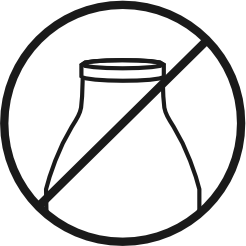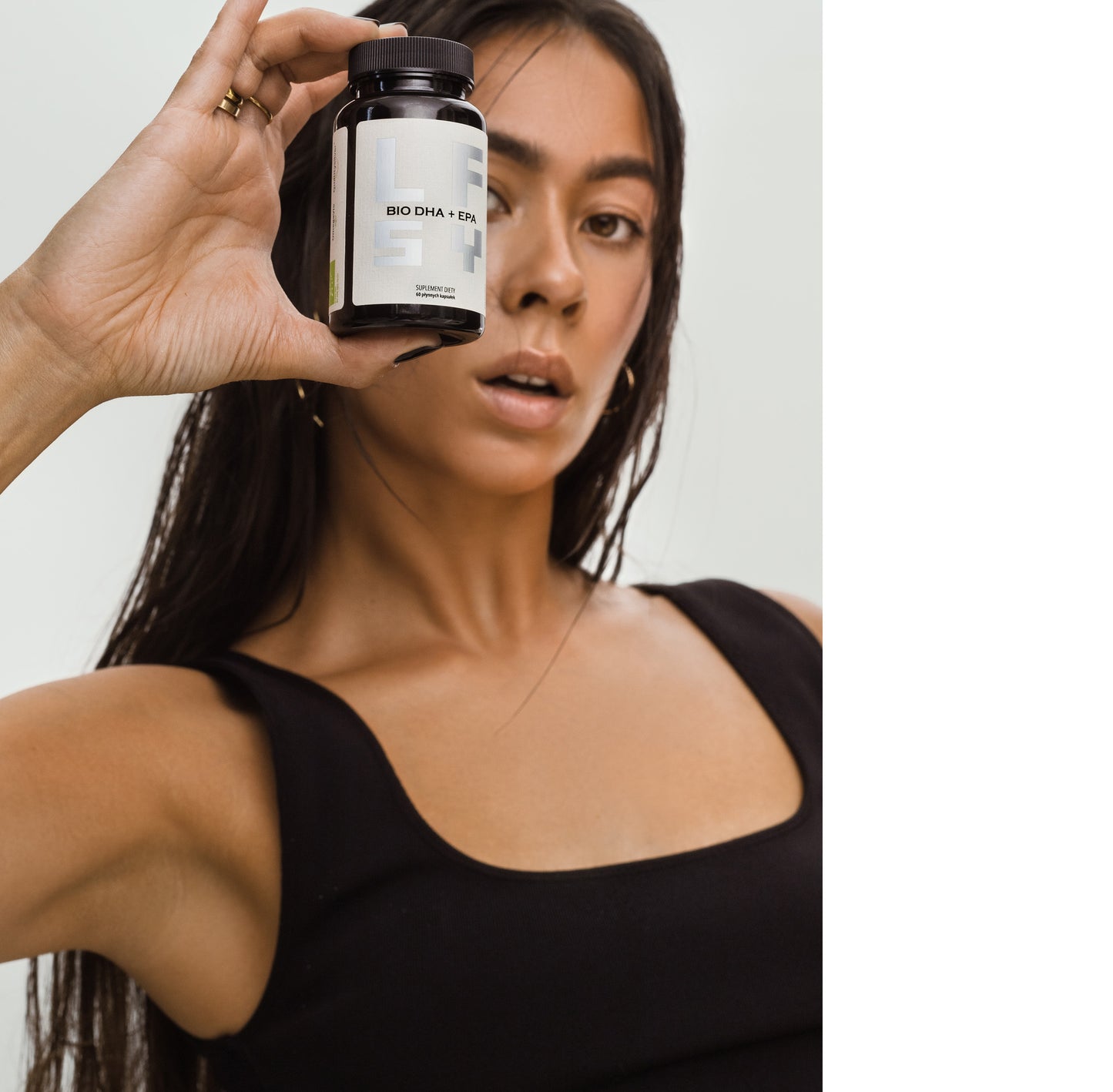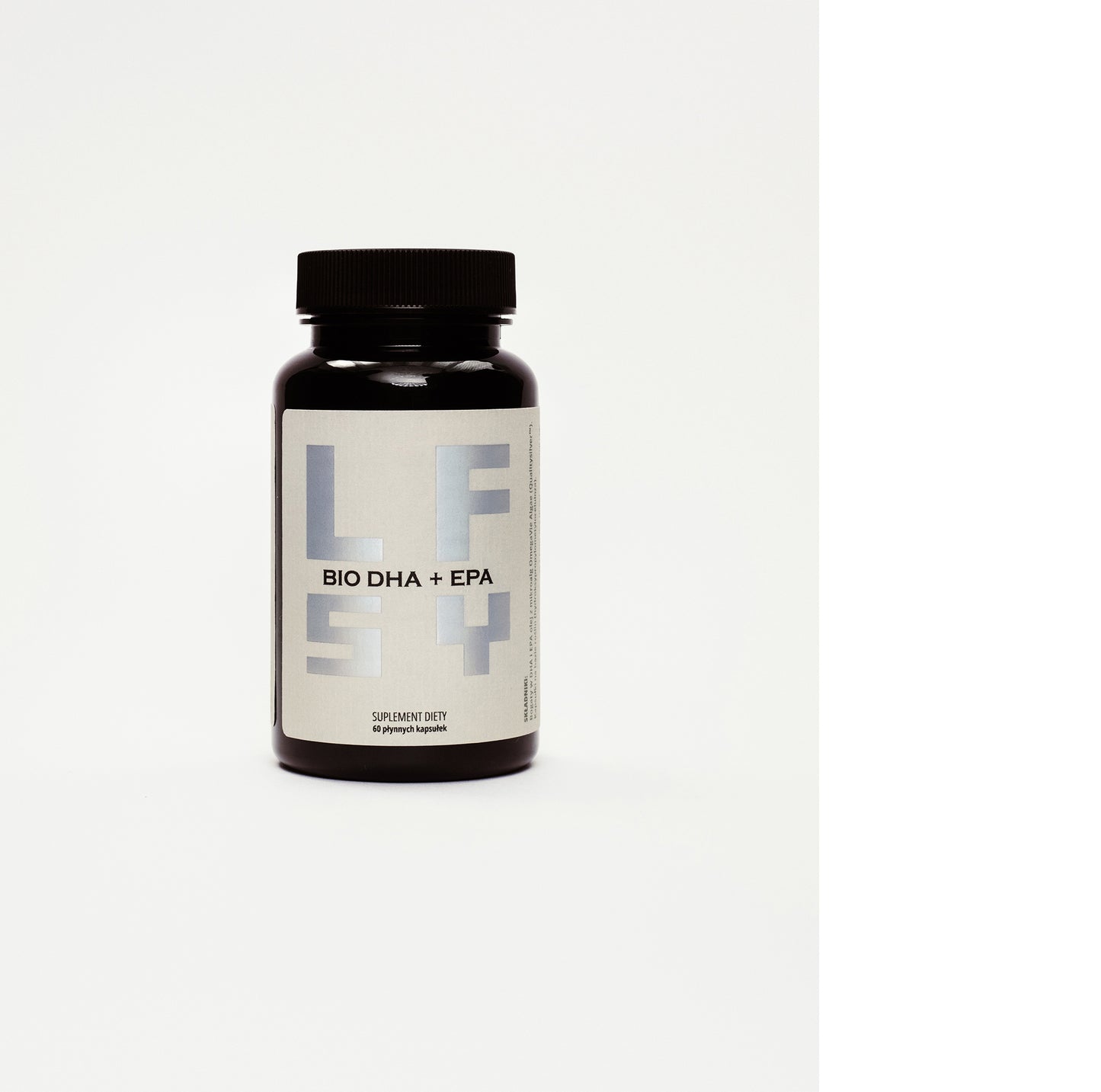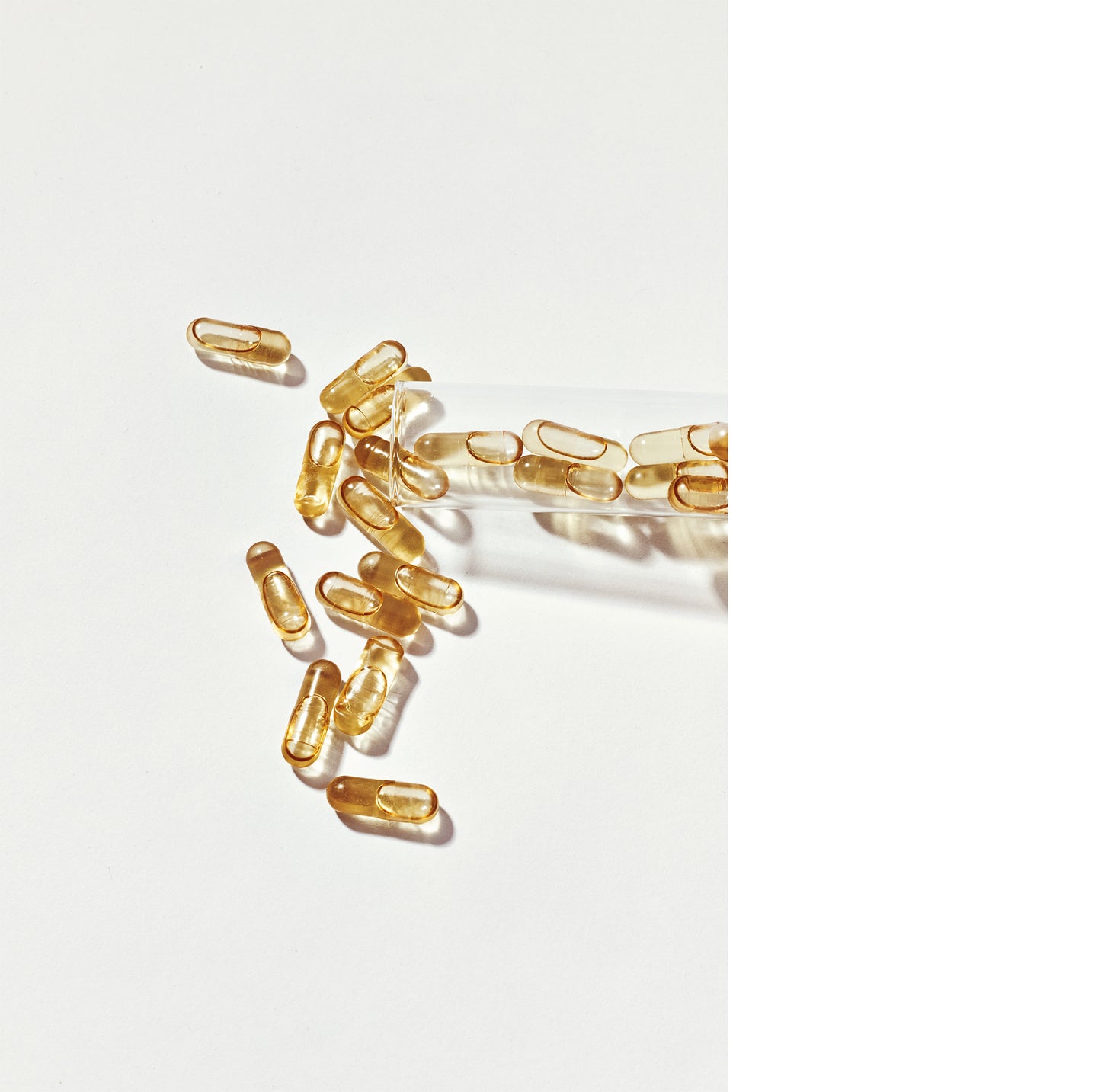LIVE FAST STAY YOUNG
BIO DHA + EPA | WOMEN
BIO DHA + EPA | WOMEN
Couldn't load pickup availability
Essential long-term feminine health.
 vegan
vegan
 gluten free
gluten free
 lactose free
lactose free




Collapsible content
Omega 3 Index
A new metric of health
In 2004 in a landmark paper a new metric was introduced to predict overall health. The Omega 3 Index (O3I). This metric only measures DHA and EPA concentrations as a percentage of all the fats in the body.
The omega 3 index (O3I) only takes DHA and EPA into account. This means it's basically a DHA and EPA index.
The O3I is measured by analyzing the cell membranes of red blood cells, which are a representative sample for the amount of DHA and EPA in the cell membranes in the whole body.
Results are interpreted as follows:
- <4% Dangerously low (USA,Canada,UK). Generally associated with 40-95% increased chance for mental symptoms and heart attack.
- 4-6% Low-range intermediate (Netherlands, Spain, Germany). Large chances of adverse health outcomes.
- 6-8% High-range intermediate (Sweden, Finland). Still not ideal, but largely decreased risks compared to the previous groups.
- 8-12% Ideal values (Norway, Denmark, Japan). 60-95% reduced risk of heart attack. (Compared to the intermediate group).
- 12-20% (Greenlandic Inuits and the Sami people of Norway) have the lowest incidents of cardiovascular disease in the world.
Data can be found on this map.
Do I need to supplement DHA and EPA as a young woman?
It is tempting for me as a brand-owner to say yes, but let's look at the facts before drawing a conclusion.
From studies we see that on average young women have a 10% higher O3I than men. Young women have this quality in order to deliver healthy babies.
Where there have been vegan men who have scored around 1% O3I. The lowest O3I in young women did not come up lower than 3.1% (1) This may very well explain why psychoses in women are reported to be less severe than in men.
Despite this fail-safe mechanism that young women possess, an average value of 5.3% O3I in western countries is still far from the desired level set to 8% O3I. Or if you aspire an Eskimo level of 15-20% O3I go ahead, the sky is the limit here.
So for young women, it is still very well possible and even likely to not reach the desirable O3I of 8%. Supplementation with algae oil can be a promising option.
Menopause
During menopause the body gives up the ability to have children. Which means you do not need to make DHA for a potential child. Unfortunately, the survival of our species does not depend on you having DHA.
Mood swings start and may partially be explained by the dropping levels of EPA, which is the most powerful for mood. Younger women are able to synthesize a significant amount of EPA. A lot more than DHA.
This means that after menopause it will be more challenging to reach that 8%. More so because our bodies, regardless of sex, absorb less DHA and EPA when we age.
Ingredients
BIO DHA + EPA in capsules, food supplement.
Ingredients:
- DHA and EPA-rich oil from microalga OvegaVie Algae (Qualitysilver™).
- Plant-based capsules (hydroxypropylmethylcellulose).
| Supplement Facts | Capsule (500mg) | Per serving (6 capsules) |
| Docosahexanoic Acid (DHA) | 200mg (40%) | 1200mg |
| Eicapentaoseic Acid (EPA) | 100mg (20%) | 600mg |
Serving size:
6 capsules (3g). Take 6 capsules daily with water during the meal.
Suggestion:
DHA and EPA are better absorbed by the body when taken with other fats. Moreover, they aid with absorbing vitamin D3, zinc and other (trace) minerals like selenium.
Science
Algae oil high in DHA and EPA may:
Prevent or delay the onset of Alzheimer's disease and dementia for high risk categories. (1) The 'omega 3 index' (which only measures DHA and EPA) shows a relationship to the onset of Alzheimer's for women 55+ (1a)
Improve mood through the gut-brain axis:
“human and animal studies have highlighted the ability of omega-3 PUFAs to influence the gut–brain axis, acting through gut microbiota composition. From these findings, the importance of the omega-3 connection to the microbiota emerges, encouraging further studies.” (2)
Prevent cardiovascular disease:
Cardiovascular disease (CVD) remains the leading cause of death worldwide. Supplementation with EPA and DHA is an effective lifestyle strategy for CVD prevention, and the protective effect probably increases with dosage. (3)
Be a significant safer choice than fish oil, due to the production process:
The production process of fish oil supplements is long and involves many steps
which can compromise the quality. The oils are often heated eg. during extraction
and deodorization. This poses a major health risk. (4)
Moreover, the environmental pollution of fish oil by heavy
metals speeds up the process of oxidation so that it is likely to be contaminated at the time it reaches the shop. (4)
Contribute to normal brain function
The published evidence is compelling enough to suggest omega-3 index (% of DHA & EPA) as a risk factor for some psychiatric diseases, specifically, major depression, postpartum depression, psychosis, and dementia. (5)
Studies have suggested that the conversion rate (From ALA to EPA and DHA) may be significantly higher in women of reproductive age compared
to postmenopausal women. Additionally, aging may lead to a decline in enzymatic activity, potentially reducing the conversion efficiency in older
individuals. (6)
Reduce harm to your gut microbiome caused by pesticides (like glyphosate (7a)), and antibiotics:
Algal oil alleviates antibiotic-induced intestinal inflammation by regulating
gut microbiota and repairing intestinal barrier (in mice). (7)
EPA intakes from 1g upwards may have anti-depressant effects in subjects with depression and high levels inflammation. Note: the 4g/day EPA group had a 65% more positive outcome after 12 weeks of supplementation. (10)
DHA, EPA (and DPA) supplementation may offer a molecular basis for a well-developed anti-allergic effect and, therefore, must be an essential part of our regular diet. (11)
Deficiency
DHA/EPA deficiency is known to cause the following health issues:
1. Cognitive Decline:
Poor memory and concentration, brain fog, and a decline in cognitive function can be associated with low DHA levels.
2. Mood Disorders:
Depression, anxiety, and mood swings have been linked to insufficient EPA/DHA, which play a role in neurotransmitter function and brain health.
3. Poor Vision:
DHA is vital for retinal health. Deficiency can lead to visual disturbances and impaired eyesight.
4. Learning Difficulties:
In children, low DHA levels can contribute to learning disabilities, attention deficit hyperactivity disorder (ADHD), and developmental delays.
5. Skin Problems:
Dry, flaky skin and other dermatological issues can arise from insufficient DHA/EPA.
6. Inflammation:
DHA/EPA have anti-inflammatory properties. Deficiency may lead to increased inflammation and related disorders such as arthritis and inflammatory bowel disease (IBD).
7. Cardiovascular Issues:
Low levels of DHA/EPA are associated with higher risks of heart disease, high blood pressure, and abnormal cholesterol levels.
8. Immune System Dysfunction:
A weak immune response and frequent infections may indicate a lack of essential fatty acids, including DHA/EPA, which supports immune function.
9. Developmental Delays in Infants:
Inadequate DHA during pregnancy and early childhood can result in developmental delays and poor brain and eye development in infants.
10. Sleep Problems:
DHA is important for the production of melatonin, a
hormone that regulates sleep. Deficiency can lead to sleep disturbances and insomnia.
Why are these health problems are caused by low DHA and EPA?
It is because they are the best molecules to build cell membranes. Not just your cell membranes but also the membranes of all the helpful bacteria all around your body.
DHA and EPA are the best defence system known to nature.
Fatty fish have such high DHA and EPA because they swim in cold waters where it is vital to preserve energy. DHA and EPA freeze at much lower temperatures than water, giving a protective effect in colder temperatures.
The most flexible molecules in nature.
The more DHA and EPA you have in your cell membranes, the more flexibility you have, which speeds up countless metabolic and enzymatic reactions in the body of every single organism. (5a)
My passion for DHA is as limitless as the possibilities of application. The sustainable and effective algae oil is able to change the world. Not only being more sustainable, but also able to increase our abilities to make better choices and take care of this world. My dream is to bring algae oil to you in large quantities, for a fair price. That is my ongoing mission, and I will not stop until all these symptoms of DHA/EPA deficiency are gone from this world.
Correcting this deficiency may add 20+ healthy years to your life! Therefore this is the first and most essential supplement by LIVE FAST STAY YOUNG.
And of course it is suitable for vegans and vegetarians.







